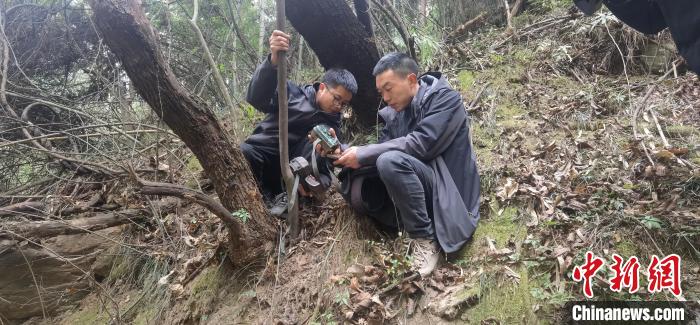New dawn for giant pandas as next-door villagers put environmental protection efforts into practice in SW China’s Sichuan
In southwest China’s Sichuan Province, villages situated near the habitat for wild giant pandas have stepped up their efforts to protect the rare species and restore the ecological environment in recent years, which has also generated wealth for the local villagers.

Photo shows Guanba village, Pingwu county, in southwest China’s Sichuan Province. (Photo/Yang Yong)
One vivid example of this has been demonstrated in Baoxing county. With 81.7 percent of the county’s area covered by the Giant Panda National Park, it is home to 181 wild giant pandas, and is where the world’s first giant panda – a species previously unknown to scientific circles in China – was discovered.
Yang Xuequan, a forest ranger from the Qiaoqi Tibetan township located inside the county, is conducting patrols more frequently in the surrounding forests these days in order to prevent any outbreaks of wildfires during the winter season. Yang, now 58, has participated in the rescue of wild giant pandas on three separate occasions, and has accumulated much experience over the years. The ranger is able to distinguish the age and health conditions of an individual panda by examining its feces. He quite often bumps into wild giant pandas during the period from April to May every year, a period when the species normally enters its breeding season.

Photo shows Guanba village, Pingwu county, in southwest China’s Sichuan Province. (Photo/Yang Yong)
In addition to protecting wild giant pandas, villagers will always pick up garbage leftover in the forests and no longer engage in the cutting down of trees for firewood. They have realized that a good natural environment can help them to better develop tourism resources and agricultural products, as suggested by a local villager named Chang Ming, adding that many young people nowadays run their own homestay hotels.
A similar story has unfolded in Guanba village, Pingwu county, a county with the most wild giant pandas according to the fourth national survey of the species. Guanba village has been dubbed as the home of “white bears,” because the panda was previously recorded as a kind of white bear in the historical documents preserved in the village. At first, there were only seven members on the village’s patrol team, but now all the local villagers participate in ecological protection, said Meng Ji, a member of the patrol team. Besides, villagers used to live a poor life in an environment that was devastated by deforestation, excessive hunting and overfishing. Thanks to 13 years of ecological restoration efforts, the village is now home to over 30 wild species and thrives on a burgeoning beekeeping industry, with an annual per capita income of over 13,000 yuan (about $2,057.9), according to Qiao Liang, Party secretary of the village.

Photo shows two forest rangers checking the footage captured by an infrared camera. (Photo/Yang Yong)

A villager shows a video clip of a wild giant panda. (Photo/He Shaoqing)

Photo shows a building with an image of a panda painted on it in the Qiaoqi Tibetan township of Baoxing county, southwest China’s Sichuan Province. (Photo/He Shaoqing)
Photos
Related Stories
- Panda cubs pose for Chinese Lunar New Year photo at nature reserve in Sichuan
- Giant panda cubs made an appearance at Shenshuping base in Sichuan
- Giant pandas in Wolong make group appearance to mark upcoming Spring Festival
- Twin pandas make public debut at Tokyo zoo much to delight of lucky few
- Twin pandas make public debut at Tokyo zoo much to delight of lucky few
- Giant panda released into Longxi-Hongkou National Nature Reserve in Sichuan
Copyright © 2022 People's Daily Online. All Rights Reserved.










